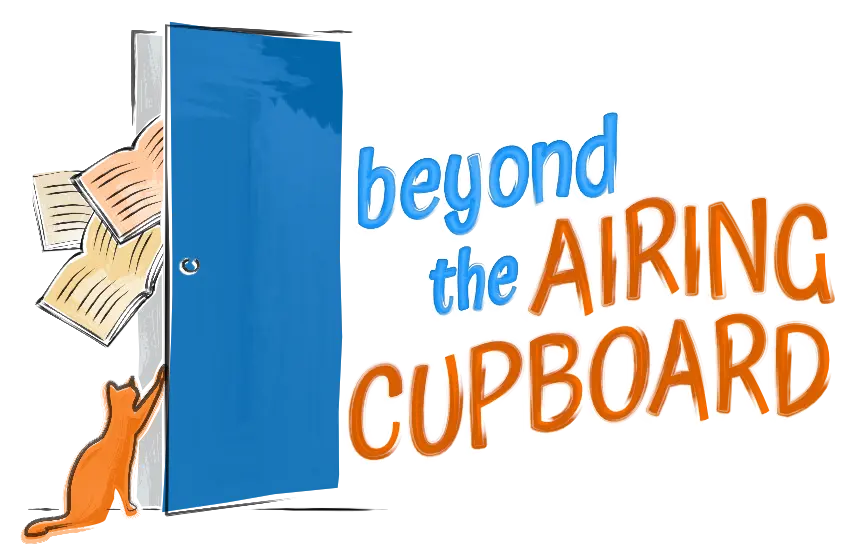Little Clarendon Street in Oxford. If you are of a certain age this address might immediately bring to mind Laura Ashley! In the 1980s I would regularly walk along St Giles, out of the main shopping centre, to visit my favourite shop. It was a time of crowded communal changing rooms where you made sure you were standing on the strap of your handbag, or you left it outside with your boyfriend, fiancé, husband who would look awkward and long suffering. I seem to remember Clothkits was there as well for a time which was useful.
Anyway, it was only considerably later that I knew this area as Jericho and understood that the OUP (Oxford University Press) and the Clarendon Institute were just around the corner, as was the canal. So, when I saw a book in Waterstones called ‘The Bookbinder of Jericho’ I knew this would be the Oxford Jericho and not the biblical one and dear reader, obviously I bought it. I had never heard of the author Pip Williams but no matter, always good to read someone new.
And, indeed, what a joy it has been. I have loved both books, such good reading. Best to read them in the right order (which I didn’t) so start with ‘The Dictionary of Lost Words’.
We are in the late 1800s and move through the first part of the 20th century, covering women’s suffrage and the First World War. The story is grounded firmly in the streets of Jericho and is written using the production of the first Oxford English Dictionary as its historical framework. Which words should be included and which should be left out? Who decides, using what criteria? How do you agree on the definition of a particular word? Do men and women use words differently? Inevitably it is almost entirely men who answer these questions and are the contributors and editors of this enormous undertaking.
Esme grows up among words as her father works on the first edition of the dictionary. She collects slips of paper that are lost, misplaced or discarded. They are the keepers of words, ones that are unwanted or not deemed suitable for this auspicious book. Esme also becomes known in the town as someone who is interested in words, and as she visits the stalls in the covered market she realises there is a vernacular used there of which she has been totally unaware.
The 1914-1918 war and the fight for women’s suffrage impinge heavily on Esme’s quiet, academic life and this gives depth and life to the story as does the ever-present friction in Oxford between ‘town and gown.’
A suffragette friend of Esme’s called Tilda makes the jump from this book to the second: ‘The Bookbinder of Jericho.’ I like it when a familiar character reappears in another book, particularly when it is not really a sequel. It’s a little like meeting a friend unexpectedly.
This subsequent story by Pip Williams was prompted by the discovery of archival information about the women who worked in the bindery (the bookbindery) of the OUP during the early years of the 20th century. They are basically erased from the history of the OUP and this makes for a very unusual story. Women were skilled workers who folded and sewed the components of a book together until the incomplete product went to the men’s room where the cover would be added and a finished book produced. The meticulous work done in the women’s room was covered up, hidden, never seen; a little like the women themselves.
Peggy and her twin sister Maude live on a houseboat on the canal in Jericho. They have both worked in the bindery since leaving school at a young age. They have been alone for several years since their mother died and are gently ‘kept an eye on’ by their comfortable, helpful, boating neighbours. Peggy has always yearned for an education and looks lovingly at the arched entrance of Somerville College as they make their way to work. It seems impossible to move from one side of Walton Street to the other. Many things have held her back, including the need to earn some money but mostly it is her deep loyalty and love for her sister Maude. Maude, who looks identical to Peggy but is different. Maude, for whom Peggy feels responsible.
And then history steps in and the world is at war. Maybe post 1918 the world will look at women differently? Maybe.
I have enjoyed these two books enormously and will read them again at some point. I will also take the pleasant half-hour train ride from Wycombe to Oxford and devise a literary walk for myself around Jericho. I might even take a nostalgic wander around Little Clarendon Street.
I have also written about ‘A Far Cry From Kensington’ by Muriel Spark, ‘The Gardener’ by Salley Vickers and ‘The Truths and Triumphs of Grace Atherton’ by Anstey Harris (a really nice read). All in: beyondthe airingcupboard.co.uk. Do have a look.
Happy holiday reading.
